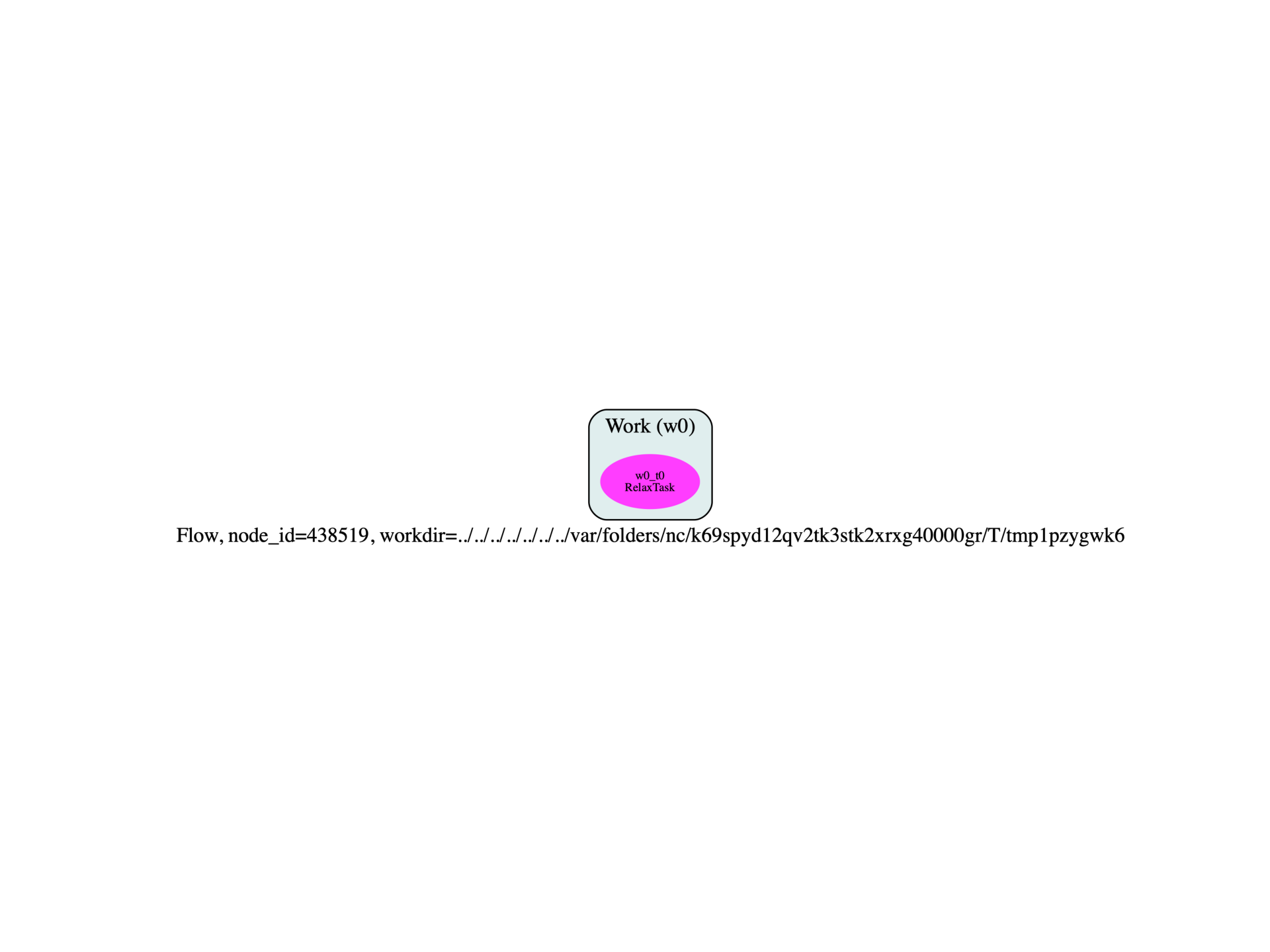Note
Go to the end to download the full example code.
Relaxation flow
This example shows how to build a very simple Flow for the structural relaxation of SiC. One could use a similar logic to perform multiple relaxations with different input parameters.
import sys
import os
import abipy.abilab as abilab
import abipy.data as data
import abipy.flowtk as flowtk
def build_flow(options):
# Working directory (default is the name of the script with '.py' removed and "run_" replaced by "flow_")
if not options.workdir:
options.workdir = os.path.basename(sys.argv[0]).replace(".py", "").replace("run_", "flow_")
pseudos = data.pseudos("14si.pspnc", "6c.pspnc")
structure = data.structure_from_ucell("SiC")
# Initialize the input
relax_inp = abilab.AbinitInput(structure, pseudos=pseudos)
# Set variables
relax_inp.set_vars(
ecut=20,
paral_kgb=1,
iomode=3,
# Relaxation part
ionmov=2,
optcell=1,
strfact=100,
ecutsm=0.5, # Important!
dilatmx=1.15, # Important!
toldff=1e-6,
tolmxf=1e-5,
ntime=100,
)
# K-points sampling
shiftk = [
[0.5, 0.5, 0.5],
[0.5, 0.0, 0.0],
[0.0, 0.5, 0.0],
[0.0, 0.0, 0.5]
]
relax_inp.set_kmesh(ngkpt=[4, 4, 4], shiftk=shiftk)
# Initialize the flow
flow = flowtk.Flow(options.workdir, manager=options.manager)
# Register the task.
flow.register_relax_task(relax_inp)
return flow
# This block generates the thumbnails in the AbiPy gallery.
# You can safely REMOVE this part if you are using this script for production runs.
if os.getenv("READTHEDOCS", False):
__name__ = None
import tempfile
options = flowtk.build_flow_main_parser().parse_args(["-w", tempfile.mkdtemp()])
build_flow(options).graphviz_imshow()
@flowtk.flow_main
def main(options):
"""
This is our main function that will be invoked by the script.
flow_main is a decorator implementing the command line interface.
Command line args are stored in `options`.
"""
return build_flow(options)
if __name__ == "__main__":
sys.exit(main())

Run the script with:
run_sic_relax.py -s
then use:
abirun.py flow_sic_relax structures
to compare the input and output structures of the tasks:
Lattice parameters:
formula natom angle0 angle1 angle2 a b c volume \
w0_t0_in Si1 C1 2 60.0 60.0 60.0 3.065 3.065 3.065 20.351
w0_t0_out Si1 C1 2 60.0 60.0 60.0 3.065 3.065 3.065 20.355
abispg_num P [GPa] Max|F| eV/ang task_class status
w0_t0_in None NaN NaN RelaxTask Completed
w0_t0_out None -0.001 0.0 RelaxTask Completed
Use `--verbose` to print atoms.
As you can see, the pressure at the end of the RelaxTask is very small (forces are zero by symmetry):
To visualize the evolution of the lattice parameters during the structura relaxation use:
abiopen.py flow_sic_relax/w0/t0/outdata/out_HIST.nc
and then inside the ipython terminal, type:
In [1]: %matplotlib
In [2]: abifile.plot()

Total running time of the script: (0 minutes 0.232 seconds)